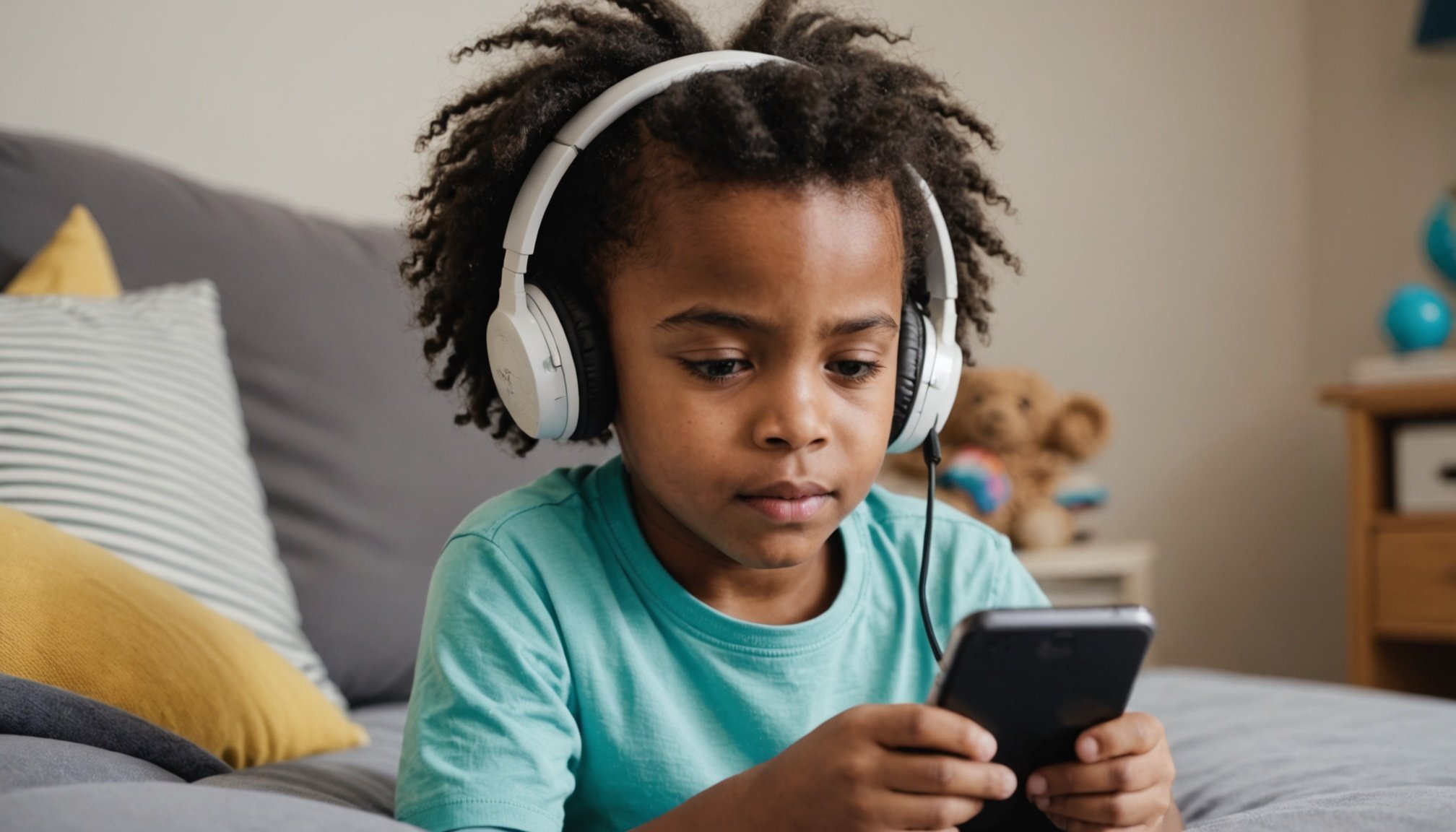In an age where digital immersion prevails, the exposure of children to screens has soared, intertwining with their daily routines. While screens offer abundant educational and recreational opportunities, they also pose potential health risks. Understanding these effects, particularly in the context of the United Kingdom, is paramount for parents, educators, and healthcare professionals alike. This article delves into recent studies and evidence to evaluate the long-term health effects of prolonged screen time on UK children, addressing concerns around physical health, sleep, and social development.
The Rise of Digital Consumption Among UK Children
Digital devices have become ubiquitous in the lives of children across the UK. A combination of educational requirements and leisure activities often results in extended hours spent in front of screens, from interactive apps to endless videos and online games. This trend raises an essential question: what are the repercussions of prolonged screen exposure on young minds and bodies?
This might interest you : What steps can individuals take to prevent burnout in high-pressure workplaces in the UK?
Recent reviews of scholarly articles and studies provide a window into shifting media habits. The Ofcom 2023 report revealed that UK children, on average, spend over 4 hours daily on digital devices. Such high levels of screen interaction manifest across diverse platforms, including television, tablets, and smartphones. While these devices serve as portals for learning and communication, they also contribute to sedentary lifestyles, potentially impacting both physical and mental well-being.
Moreover, with the onset of the global pandemic, digital consumption patterns witnessed unprecedented shifts. The enforced isolation meant that children heavily relied on digital media for both education and social interactions. However, the permanence of these habits could have unintended health consequences. As we navigate these new norms, understanding the balance between beneficial screen usage and its adverse effects is more crucial than ever.
Impact on Physical Health and Development
Prolonged screen time has been linked to several physical health concerns, particularly among adolescents. The sedentary nature of screen-based activities contributes to a decline in physical activity levels, increasing the risk of obesity. Studies published on PubMed highlight a correlation between extended screen usage and heightened body mass index (BMI) in children, challenging their overall physical well-being.
Additionally, the adverse effects extend to postural issues and musculoskeletal problems. Hours spent hunched over screens can lead to neck and back pain, warranting frequent health inspections. Ergonomic considerations and regular breaks can mitigate these effects, yet they often remain unaddressed.
Beyond musculoskeletal health, screen-induced visual fatigue, or digital eye strain, emerges as a common concern. Prolonged exposure to blue light from screens can impair vision, causing discomfort, dryness, and even headaches. While the debate continues on the long-term effects of blue light, it is prudent for parents to encourage regular screen breaks to protect their child’s vision.
In essence, understanding the physical implications of prolonged screen exposure is critical. Parents and educators must advocate for balanced digital consumption, incorporating physical activities that cultivate healthy growth and development.
The Relationship Between Screen Time and Sleep
One significant area of concern regarding screen time is its impact on child and adolescent sleep patterns. Several scholarly studies consistently point to a negative correlation between screen usage and sleep quality. The luminous glow from screens affects the body’s production of melatonin, a hormone that regulates sleep-wake cycles, causing disruptions in sleep patterns.
The findings from a 2023 study published in the doi journal underscore the importance of moderating evening screen time. Children with higher screen exposure tend to have delayed bedtimes and reduced overall sleep duration, leading to daytime fatigue. This can adversely affect their academic performance and emotional well-being.
Moreover, the engaging content accessible through screens can cause increased cognitive arousal, making it difficult for children to wind down. The evidence suggests that setting a digital curfew an hour before bedtime can significantly improve sleep quality.
As the digital age continues to evolve, regulating screen time remains a challenge. However, prioritizing healthy sleep habits is imperative to nurturing children’s holistic development. Promoting a screen-free routine before bed can significantly enhance sleep quality, contributing to their overall health and scholar success.
Social and Emotional Impacts of Screen Exposure
In the digital era, children are increasingly engaging with online platforms, fostering virtual connections through social media and interactive games. While this offers outlets for creativity and communication, the potential social and emotional repercussions warrant consideration.
Excessive screen time can inadvertently isolate children from face-to-face interactions, crucial to developing interpersonal skills. As social creatures, children thrive on real-world interactions that cultivate empathy, cooperation, and effective communication. Studies have shown that over-reliance on digital interactions can hinder these skills, affecting their social and emotional development.
Moreover, exposure to curated realities displayed on social media can lead to feelings of inadequacy and low self-esteem among adolescents. The pressure to conform to perceived norms can induce anxiety and depression, issues exacerbated by cyberbullying.
Parents and guardians play a pivotal role in guiding children’s media consumption. Open conversations about the realities of online content, paired with supervised digital engagement, can mitigate potential negative effects. Encouraging participation in offline activities fosters a balanced social life, ensuring digital exposure complements rather than detracts from their emotional growth.
In the realm of constant connectivity, understanding the long-term health effects of prolonged screen time on UK children is integral. While digital media offers invaluable resources for learning and recreation, it also necessitates mindful consumption.
Addressing the physical health implications, ensuring fair sleep patterns, and safeguarding social and emotional well-being are essential steps in managing children’s screen time. By fostering an environment of balanced media usage, we can empower children to thrive both digitally and in the tangible world.
As stewards of the next generation, it is our responsibility to guide them in navigating the digital landscape responsibly, harnessing its benefits while mitigating its risks. Through informed choices and open conversations, we can ensure that screen time enhances rather than hinders their journey to health and success.











